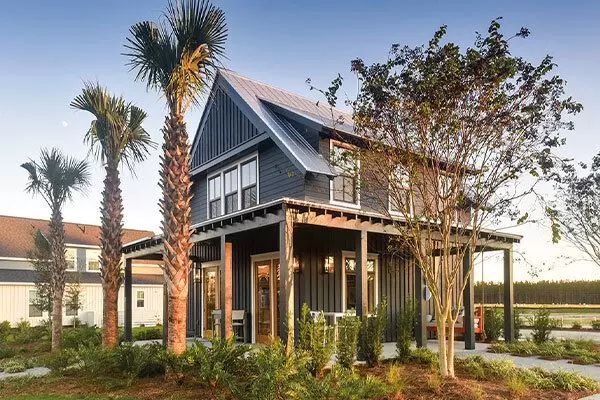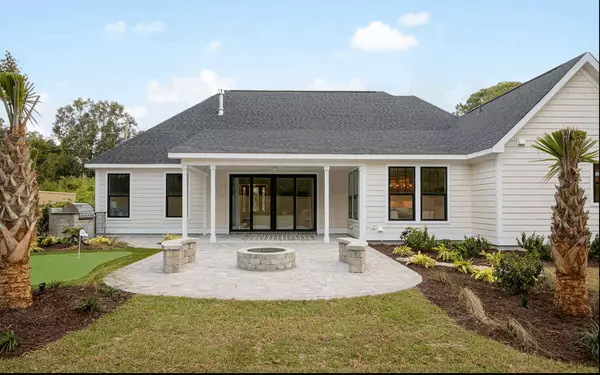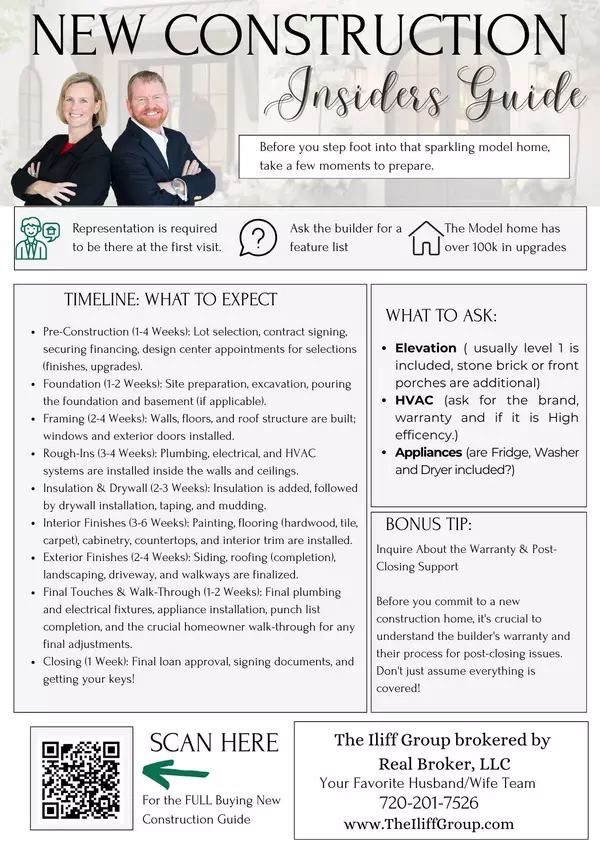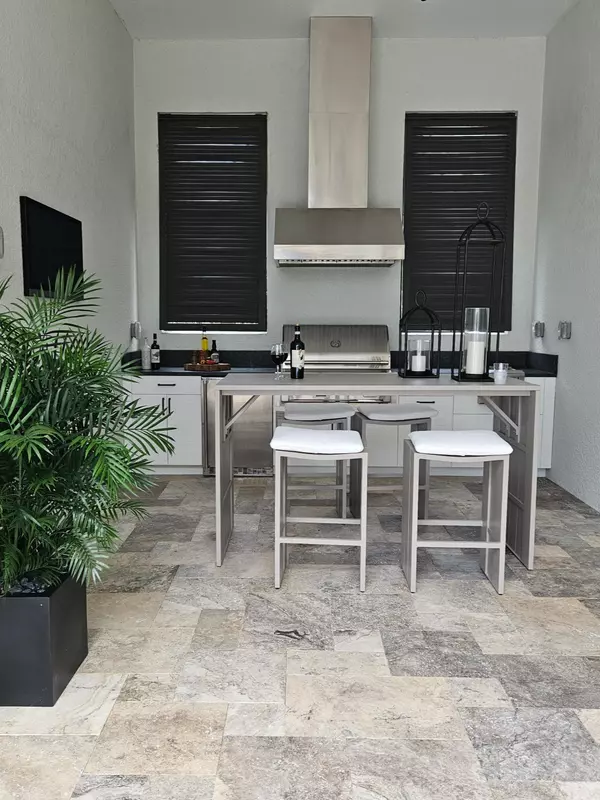South Carolina Real Estate Investment Tax Advantages

Maximizing Your Wealth: Key South Carolina Real Estate Investment Tax Advantages

South Carolina is more than just beautiful beaches and charming historic cities; it's a powerful market for real estate investment when you understand the tax landscape. As a husband and wife team deeply rooted in the Palmetto State, we've guided countless investors to financial success by navigating the unique state and federal tax codes. The secret to maximizing your return on investment (ROI) isn't just buying low and selling high; it's strategically leveraging the available tax advantages throughout the ownership lifecycle, from the purchase and holding period to the final sale.
In this comprehensive guide, we'll break down the specific tax benefits that make South Carolina a prime location for investment property. We'll show you how to reduce your taxable income, lower your property tax burden, and ultimately keep more of the profits from your real estate ventures.
The Crucial Difference: Investor vs. Primary Residence Tax Status
The single most important concept for a real estate investor in South Carolina is understanding the property classification and its direct effect on your tax bill. South Carolina separates properties into two primary tax assessment ratios:
-
4% Assessment Ratio: Reserved for your legal residence (owner-occupied primary home). This is the lowest tax assessment ratio available, and it includes an exemption from school operating millage, significantly reducing the annual property tax bill.
-
6% Assessment Ratio: Applied to all non-owner-occupied properties, which includes rental properties, second homes, and vacant land held for investment.
While investors are subject to the higher 6% ratio, it's crucial to know that South Carolina's effective property tax rates are still among the lowest in the nation, which helps offset the higher assessment ratio compared to other high-tax states.
Strategic Property Tax Management: Assessment Ratios and Millage Rates
Understanding the South Carolina property tax formula is the first step to smart investing:
Appraised Value: The fair market value as determined by the county assessor's office. South Carolina law requires a county-wide reassessment every five years. The good news is that increases in value are generally capped at 15% for existing property owners between reassessment years, providing a predictable ceiling on tax hikes.
Assessment Ratio: As noted, your investment property will be assessed at 6% of its fair market value.
Millage Rate: This is the tax rate set by local governing bodies (counties, cities, special districts) and is expressed in "mills" (dollars of tax per $1,000 of assessed value). Millage rates can vary widely, which means the location of your investment property is paramount to its long-term financial viability. We always advise our clients to research the millage rates of specific counties and municipalities before purchasing a new investment property.
Maximizing Annual Deductions and Operating Tax Benefits
Once we close on an investment property for you, the real tax benefits start kicking in. The federal and state governments allow us to treat our rental properties as a business, which opens the door to a host of valuable annual deductions that dramatically lower our net taxable rental income. This means the actual cash flow you receive can be substantially higher than the profit reported to the IRS and the South Carolina Department of Revenue (SCDOR).

The Power of Depreciation: A Non-Cash Write-Off
Depreciation is arguably the most valuable tax advantage for real estate investors. It allows us to deduct the cost of the property (excluding land) over a specified number of years, reflecting the asset's wear and tear.
-
Residential Rental Property: The structure can be depreciated over 27.5 years.
-
Commercial Rental Property: The structure can be depreciated over 39 years.
This is a non-cash deduction, meaning we write off an expense that we aren't actually paying for out of pocket each year, creating a substantial "paper loss" that offsets real rental income. For example, if your annual rental income is and your allowable depreciation is , your taxable income is reduced to just .
Essential Operating Expense Deductions
Almost every dollar you spend to operate and maintain your investment property is a direct deduction against your rental income. Key deductible expenses include:
-
Mortgage Interest: The interest paid on your investment property loan is fully deductible. This is often the single largest annual deduction in the early years of a mortgage.
-
Property Taxes and Insurance: The annual property taxes (assessed at the 6% ratio) and all insurance premiums (hazard, liability, flood, etc.) are deductible.
-
Repairs and Maintenance: Costs to keep the property in good working order—such as fixing a leaky pipe, painting a single room, or repairing a broken appliance—are immediately deductible in the year they are incurred. Note: Improvements (like adding a new room or a new roof) must be capitalized and depreciated.
-
Professional Fees: Fees paid to a property manager, real estate attorney, or accountant for services related to the rental business are deductible.
-
Utilities: Any utility costs we pay for the property, such as common area electricity or water bills, are deductible.
-
Travel Expenses: Costs incurred for traveling to inspect or manage the property are deductible, including mileage.
Long-Term Wealth Strategies: Capital Gains and Deferrals
While the annual deductions are fantastic for cash flow, the true wealth is built when you sell an appreciated asset. South Carolina offers favorable treatment for capital gains, and federal strategies can allow us to defer those taxes indefinitely.

South Carolina’s Favorable Capital Gains Deduction
At the federal level, long-term capital gains (assets held for more than one year) are taxed at favorable rates (0%, 15%, or 20%).
At the state level, South Carolina provides a significant benefit: The state allows a 44% deduction on net capital gains from assets held for more than two years.
This 44% exclusion significantly lowers the effective state tax rate on your investment profits. If the top marginal income tax rate in South Carolina is 6.2%, applying the 44% exclusion effectively lowers the top state tax rate on long-term capital gains to approximately . This is a major advantage for wealth preservation compared to states with high capital gains taxes.
The Power of the 1031 Exchange (Like-Kind Exchange)
For the sophisticated investor, the 1031 exchange is a game-changer. This federal provision allows us to defer all capital gains taxes on the sale of an investment property if we use the proceeds to purchase a "like-kind" investment property.
-
Tax Deferral: We don't avoid the tax entirely, but we postpone it until a much later date, allowing the full profit from the sale to be reinvested and continue to appreciate.
-
Wealth Building: By continuously leveraging 1031 exchanges, we can move from smaller single-family rentals to larger multi-family properties or commercial assets, creating a powerful compounding effect on our wealth, all while deferring the significant capital gains tax bill.
-
Strict Timelines: We must adhere to rigid federal deadlines: 45 days to identify potential replacement properties and 180 days to close on the new property after the sale of the old one. We work closely with qualified intermediaries to ensure these timelines are met seamlessly.
Other Niche Tax Credits and Exemptions
Beyond the core deductions and deferral strategies, South Carolina offers specific programs and incentives that may apply to your investment niche, particularly those involved in commercial or historical preservation.

South Carolina Historic Property Tax Credits
If your investment property is a historically significant structure, either for renovation or as part of a preservation effort, South Carolina offers valuable income tax credits that can offset your tax liability dollar-for-dollar. These credits can include:
-
State Historic Rehabilitation Tax Credit: Tax credits for the rehabilitation of historic structures.
-
Federal Historic Tax Credit: A complementary federal credit for income-producing historic properties.
These credits are complex but can offer massive leverage for investors specializing in restoring the charming, historic buildings that define cities like Charleston, Beaufort, and Columbia.
Opportunity Zones
Certain economically distressed communities across South Carolina have been designated as Opportunity Zones. Investing in real estate within an Opportunity Zone can provide investors with a triple-threat tax advantage:
-
Temporary Deferral: Temporarily deferring federal taxes on prior capital gains if those gains are invested into a Qualified Opportunity Fund.
-
Basis Step-Up: Reducing the deferred capital gain tax by or more over time.
-
Permanent Exclusion: A permanent exclusion from capital gains on the new Opportunity Zone investment if held for at least 10 years.
We are actively tracking the designated South Carolina Opportunity Zones and can help you evaluate properties that qualify for this high-level tax strategy.
Partnership Structure and Passive Activity Rules
The legal structure of our investment partnership is the final layer of tax optimization. The Passive Activity Loss (PAL) rules are a critical piece of the puzzle. Generally, losses from passive activities (like being a typical rental real estate investor) can only be deducted against passive income, not against active income (like salaries or business profits).
Qualifying as a Real Estate Professional
For high-income earners, the Passive Activity Loss rules can limit the immediate benefit of those fantastic depreciation deductions. However, we can help you work with your tax advisor to potentially qualify as a Real Estate Professional (REP).
To qualify as a REP, one of us must meet two primary criteria:
-
Material Participation Test: More than half of all personal services performed in all trades or businesses during the tax year must be performed in real property trades or businesses.
-
Hours Test: We must perform more than 750 hours of service in real property trades or businesses in which we materially participate.
If one of us qualifies as a REP, it allows us to potentially deduct unlimited rental losses (including depreciation) against our non-passive, ordinary income, creating massive tax savings.
Strategic Entity Selection
Whether we set up a Limited Liability Company (LLC) or a different entity to hold our properties, the structure is critical for both liability protection and tax flow. We typically advise our clients to operate as an LLC for liability protection but to choose a tax classification that allows the income and losses to "flow through" directly to our personal income tax returns (e.g., as a disregarded entity or a partnership), ensuring we can personally take advantage of the deductions and depreciation.
The journey to building substantial wealth through South Carolina real estate is paved with strategic tax planning. Waiting until tax season to think about these advantages is leaving money on the table.
We invite you to Contact Us to schedule a personalized investment consultation today. Let us put our deep understanding of South Carolina's market and its complex tax code to work for you. We'll help you craft a tailored investment strategy that maximizes your annual deductions, strategically defers capital gains, and ensures you're on the most profitable path to financial freedom.
Related Resource:
Frequently Asked Questions
1. What is the biggest tax difference between owning a primary home and an investment property in South Carolina?
The largest difference is the property tax assessment ratio applied to the property's fair market value. Your primary legal residence is assessed at the favorable ratio, and is also exempt from school operating millage, resulting in a much lower annual tax bill. An investment property, which is non-owner-occupied, is assessed at the higher ratio, which directly leads to a higher property tax payment each year.
2. How does the 1031 Exchange allow us to defer taxes when selling a rental property?
The 1031 Exchange is a federal rule (Section 1031 of the Internal Revenue Code) that permits us to postpone paying capital gains taxes on the sale of an investment property. This is achieved by reinvesting the entire proceeds into a new, "like-kind" investment property within strict federal timeframes. By deferring the tax, we can leverage the full amount of the sale profit for a larger purchase, allowing our investment capital to compound and grow over time.
3. What is depreciation, and why is it so beneficial for real estate investors?
Depreciation is a non-cash accounting deduction that recognizes the gradual wear and tear and obsolescence of an investment property's structure over time. For residential rentals, this is typically spread over years, and it allows us to deduct a portion of the property's cost annually without spending any money. This creates a "paper loss" that can significantly offset real rental income, thus reducing our overall net taxable income and lowering our tax bill.
4. What is South Carolina's tax treatment on long-term capital gains from the sale of an investment?
South Carolina provides a significant tax benefit for net capital gains realized from the sale of an asset held for more than two years. The state allows for a substantial deduction on the net capital gain amount. This deduction effectively lowers the portion of our profit that is subject to state income tax, making the effective state tax rate on our investment profit much lower than the top marginal income tax rate.
5. Can we deduct all expenses we incur while owning and operating our South Carolina rental property?
Generally, nearly all ordinary and necessary operating expenses for the rental property business are fully deductible against our rental income in the year they are incurred. This includes major expenses like mortgage interest, property taxes, insurance premiums, and professional fees like property management or legal costs. However, major property improvements (like a new roof or structural addition) must be capitalized and then depreciated over multiple years, rather than being fully deducted at once.
Categories
- All Blogs (83)
- Cost of Living in Summerville SC (21)
- Cost of Selling or Buying a Home (23)
- Downtown Summerville SC (6)
- Freebie (2)
- Golf in Summerville SC (2)
- Guides (15)
- Job Opportunities in Summerville SC (1)
- Lifestyle and Culture (22)
- Market Trends (3)
- Nearby Areas & Comparison Guides (15)
- Neighborhoods in Summerville SC (21)
- PCSing to Charleston - Military Guidance (12)
- PCSing to Charleston SC (22)
- Property Taxes in Summerville SC (6)
- Relocation Questions & Miscellaneous Topics (39)
- Retire in Summerville SC (5)
- Schools in Summerville SC (13)
- Things to do in Summerville SC (6)
Recent Posts












